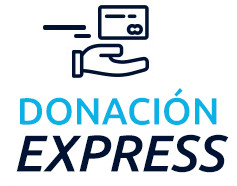
Program Details
Help support
MAKING MEMORY is an educational activity to raise awareness of what happened on July 18, 1994. It provides first-hand information on little-known aspects of the AMIA attack and allows dialog among the participants. We offer the activity for free year round and especially in the weeks prior to the commemoration of the attack.
We begin projecting the documentary "The youngsters who rescued memory" which tells the story of the 800 young volunteers who rescued the books and collections of the IWO Foundation, located in the AMIA building at the time of the attack. Although the film includes testimonies from the rescuers, we begin the talk with the present testimony of someone who participated in the rescue and recovery of the file. As it is a painful subject, we take special care in generating a framework of containment, respect, and plurality.
Among other issues closely related to the attack, we highlight the importance of libraries and archives in the construction of identity, memory, and justice. Among the youngest, we intend to arouse interest in reading and research. We always talk with the participants about the value of volunteering, the role of young people, the importance of solidarity, and the need to investigate the cause so that justice is done.
For years we have been carrying out the activity with groups of sixth and seventh-grade students. We propose to the children put together a book where they can express their opinions, reflections, feelings, and questions that arise from the documentary. Each student makes a page and then proceeds to its layout in a book made by hand with the help of our volunteer team. Finally, we all read the finished book together. The finished book becomes part of the library. The activity can also be adapted for other groups and is customized according to the age group, and professional, social or political interests of the group. For example, when we carried out this activity at a conference of librarians, technical and ethical issues related to the role of professionals and volunteers in libraries were discussed. In a joint activity of students and grandparents, emphasis was placed on communication between generations. With students from technical schools, we held debates with interactive techniques through cell phones.
The activity lasts one to two hours and is offered free of charge to primary and secondary schools across the country, clubs, student unions, and political and community organizations.

